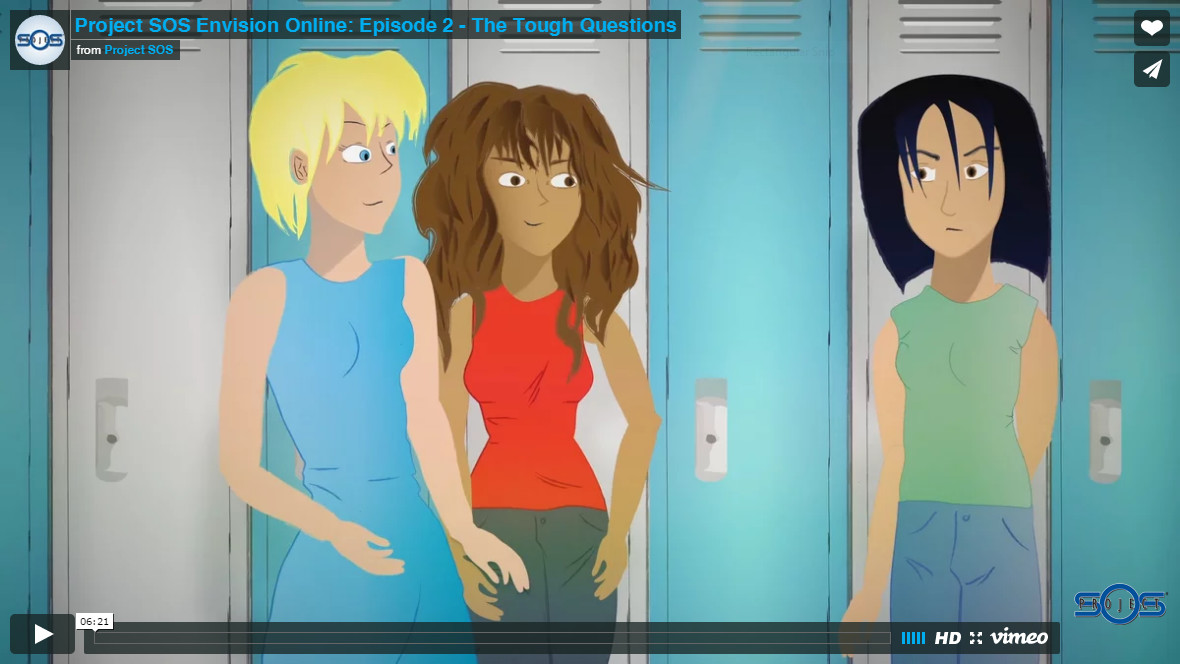
Dr. Pam Mullarkey-Robbins recalls the day 23 years ago she had to break the news to a Ponte Vedra couple that their 14-year-old daughter was pregnant.
While her well-educated, affluent parents were at work, the girl was persuaded by an older boy to let him into her home. He later encouraged his friends to exploit the girl as well.
“She had no sense of boundaries and no refusal skills – and her parents were devastated,” said Robbins, a former high school teacher who served for eight years on the St. Johns County School Board. “They were the perfect family, but they were having problems just like any family.”
The incident would lead Robbins to found Project SOS – Strengthening Our Society – a nonprofit organization aimed at equipping teens with the critical life skills needed to make positive choices and protect themselves from unhealthy situations and relationships. Today, more than two decades later, Project SOS has impacted more than 460,000 students in the Northeast Florida and Southeast Georgia area as well as in such far-flung locales as Russia, Haiti and Uganda.
Working with middle and high school students, Project SOS’s youth development specialists go into the classroom and teach kids evidence-based, age-appropriate strategies for dealing with issues in eight key areas: goal setting, boundaries, refusal strategies, healthy and unhealthy relationships, media influences, substance abuse, sexual risk avoidance, and anti-bullying/self-harm/suicide. Participants receive a journal titled “Envision: Defining Your Direction in Life” that provides information and activities to help students set goals and develop effective strategies.
Project staff stress, however, that the sessions are anything but boring.
“We try to make the lessons ‘edutaining,’” Youth Development Specialist Geraldine Ramirez said. “We use videos, play games and share stories.”
Project SOS has also offered summertime digital arts internships that enabled teens to help write and produce the digital videos used to help their peers develop effective skills and strategies. Available for viewing online at http://projectsos.com/resources/teen-resources/, the videos present real-life scenarios today’s teens may face and offer effective strategies for successfully navigating difficult situations.
“We’re all about getting students involved and engaged and equipping them,” Youth Development Specialist Bernabe Murguia said.
Robbins agreed. “With the videos, we can now reach kids where they are – on their cell phones.”
A positive paradigm
Last year, Project SOS reached nearly 11,000 students in more than 50 area schools. And among the issues project staff encountered, they said, were teens who felt their lives lacked meaning.
“We try to help them see that life is about more than just chasing what you want right now,” Murguia said. “It’s about giving back, having a purpose and making life more meaningful. We try to instill those core values that are not being taught academically.”
Youth Development Specialist Katrina Rogers noted that when teens are struggling with depression or suicidal thoughts, it becomes difficult for them to see beyond the negative aspects of their current situation.
“We try to shift that paradigm to the positive,” she said, “and help them focus on the fact that in this moment their life has value.”
Parental involvement and open communication are also critical, staff said. When Project SOS specialists asked students how it made them feel when their parents spent mealtimes scrolling through their cell phones, students said it made them feel as though they didn’t matter to their parents, or that their parents’ friends and Facebook posts were more important than they were.
“A lot of parents put the blinders on because it’s easier than dealing with the problem,” Robbins said.
Currently, Project SOS has produced videos to accompany two of its eight key components and is raising funds to produce the remaining six. The organization is also working on ways to engage more teens by inviting them to share their own experiences through a creative writing contest.
“We’ll speak to any school, organization or PTO where we’re invited,” Robbins said, saying the life skills Project SOS imparts can help prepare teens mentally and emotionally for high school, college and beyond. “God knows I wish I had these tools when I went to college.”
For more information on Project SOS, visit www.projectsos.com. To invite Project SOS to speak to your school or group, contact Katrina Rogers at katrina@projectsos.com.